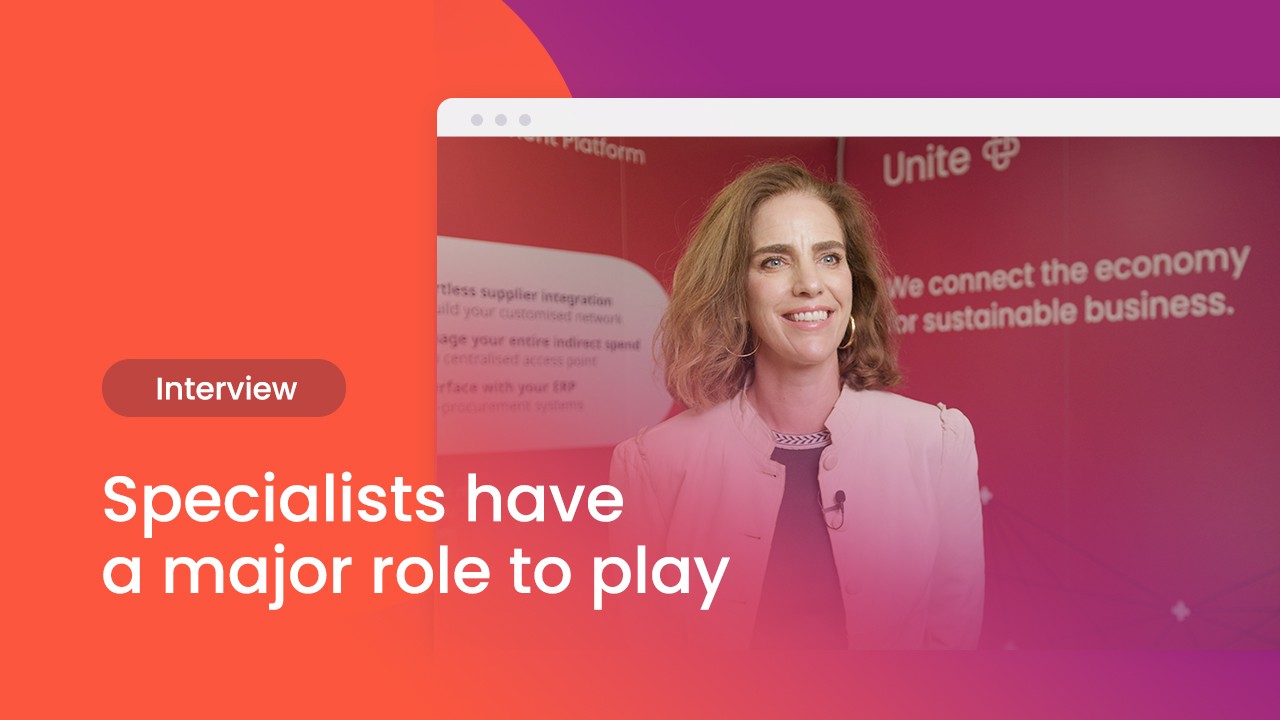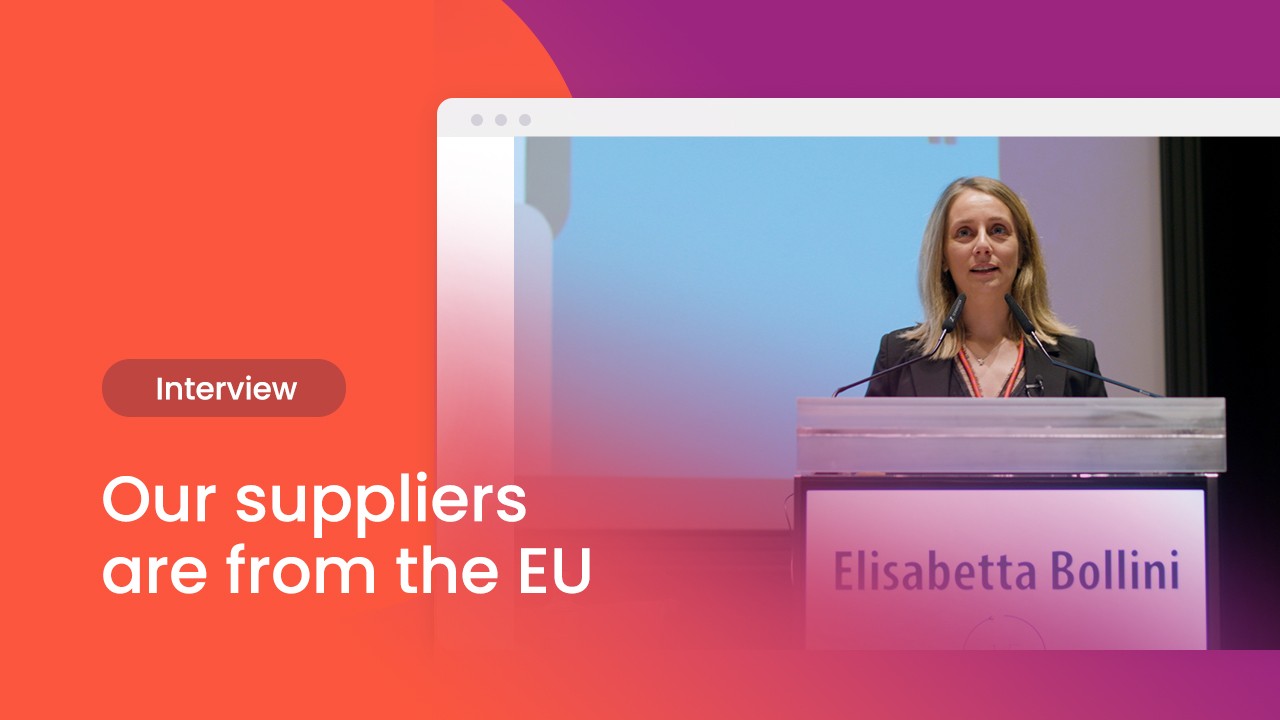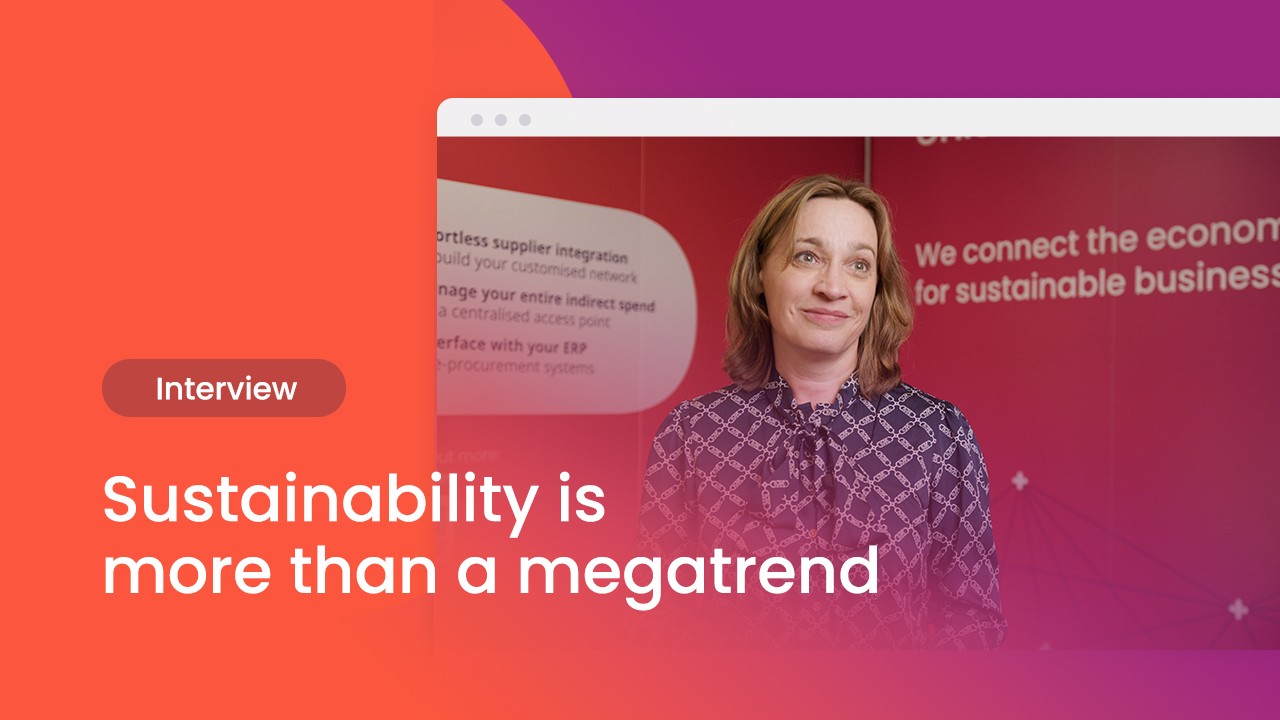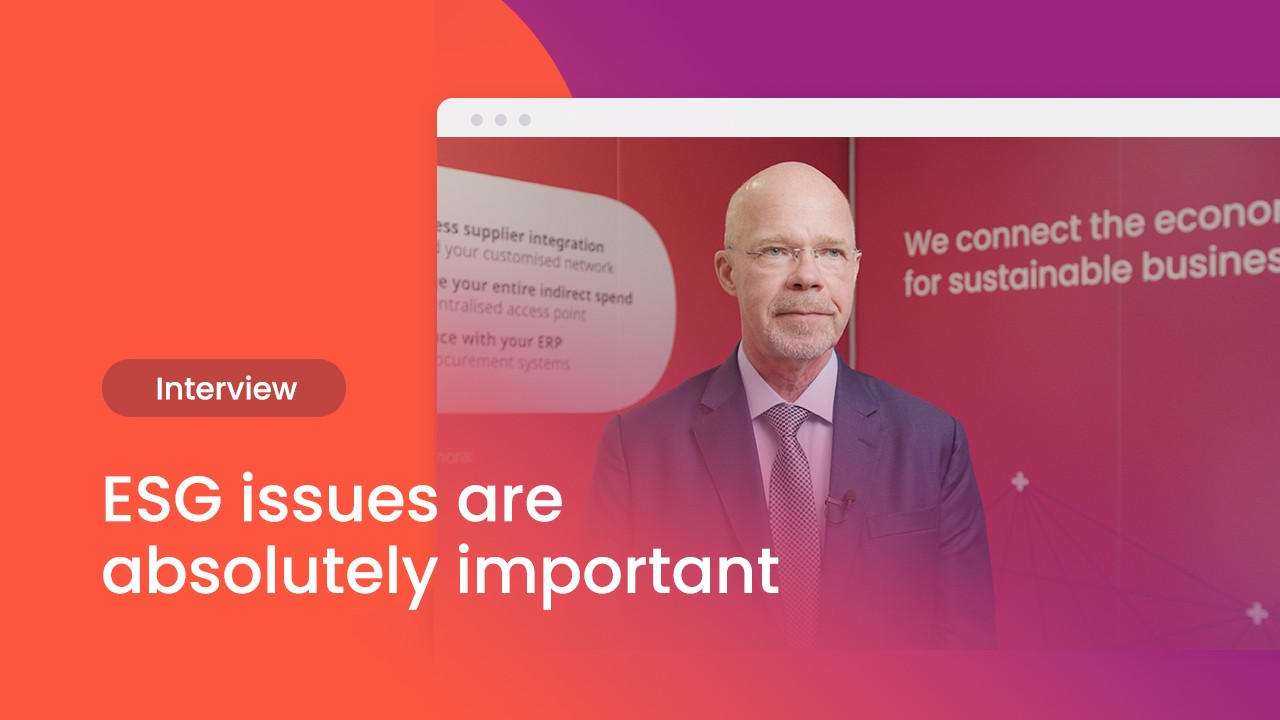Dynamic times require real-time data and automation to create transparency and better decisions. By embracing digital technologies, companies can make smarter choices, optimise their resources, benchmark sustainable activities and ultimately gain a competitive edge in the dynamic landscape of today's global markets.
Speakers at the recently concluded IFPSM conclave for procurement professionals in Italy touched upon various topics revolving around permacrisis and how digitalisation is part of the solution.
Evolving procurement realities
Keynote speaker and member of the Unite Executive Board, Christel Constant, emphasised how disruption in supply chains, such as shortages, supply/demand fluctuation, and increased contractual complexity, does not make it easy for the procurement professional. Add regulatory requirements to that list, and the pressure to make the right decision becomes more complex on a day-to-day basis.
She mentioned how the role of the procurement professional is evolving to become a lot more nuanced. They must wear many hats today – risk manager, volatility manager and sustainability manager.
Navigating procurement complexity
Rapidly changing requirements such as risk management, agile and sustainable procurement can be accomplished only by leveraging digital tools.
Looking at the classical procurement process, which used to be revised on a fixed term basis (eg; 3 years) where a procurement team first analysed the demand, approached qualified suppliers and selected them after locking down prices and conditions – this time-consuming cycle is no longer feasible as the current permacrisis puts pressure on each step of the process. Price volatility also leads to more negotiations from let’s say 3 years to every 6 months leading to process costs outweighing savings.
There are also other factors at play that act as catalysts of change, such as rapid innovation. Christel gave an example of one of our energy sector customers developing new wind turbines each year. Rapid innovation needs to be there needs to be complimented by a rapid turnaround in defining new ways to fulfill their demand for a core assortment of spare parts.
Qualification of suppliers in the past was heavily dependent on a single sourcing strategy, but with the disruption of the supply chain and interdependencies, it is crucial to have a multi-supplier sourcing strategy to mitigate risk with different suppliers.
The other visible trend is the decentralisation of the procurement process to the end users in an organisation and solutions like the Single Creditor solutions help make this transition as seamless as possible and to manage multi suppliers without an increase in process costs.

Our Single Creditor solutions
Meet the smart, flexible way to transform your procurement process. With Unite, your business benefits from a customisable marketplace, while you keep control of assortment and spend.
Explore our B2B solutions
Elisabetta Bollini, Country Manager Unite, Italy, who also spoke at the event, said digitalisation not only helps us reduce up to 70% of costs arising from routine activities but is also a great asset for improving compliance and risk management procedures.
There are many digital tools available in the market that offer data-driven insights, price finding, and purchase-to-pay solutions, but all these tools need to act cohesively to contribute to a single point of decision-making.
Sustainability is paramount
Sustainability in e-procurement is not only beneficial for the environment and society but also for the businesses themselves. It promotes efficient resource usage, cost savings and a positive brand image.
Gundula Ullah, Chairwoman of BME and CPO of Funke Mediengruppe says sustainability is on everyone’s mind, and tools that help companies meet their goals, like those offered by Unite, emerge as the obvious choice.
Adaptability and responsibility
Markku Henttinen, CEO IFPSM, says it is challenging for procurement professionals to manage pier/tier 2 suppliers. “To manage this, there needs to be a good system in place to support the evaluation. Badly managed ESG can be tantamount to reputational risks for the company.”
In conclusion, the contemporary procurement landscape necessitates combining technology, sustainability and strategic acumen. Embracing innovative digital tools such as those provided by Unite paves the way for streamlined processes, heightened compliance, and socially responsible practices to steer businesses toward a future where adaptability and responsibility are paramount.
Read more about procurement strategies in our Stories & Insights section

What’s the difference between dedicated marketplaces for businesses and consumers?

Indirect tail spend matters in procurement strategies
Indirect tail spend represents around 20% of a company’s spending. Learn more about tail spend challenges and how to gain significant savings.

Tackling VUCA and dynamic markets
Unite CEO Dr Sebastian Wieser answered exciting questions about the biggest challenges of our time: volatility, scarcity and inflation, at the 2022 Digital Procurement World Conference in Amsterdam. Watch the video interview and learn more about...




